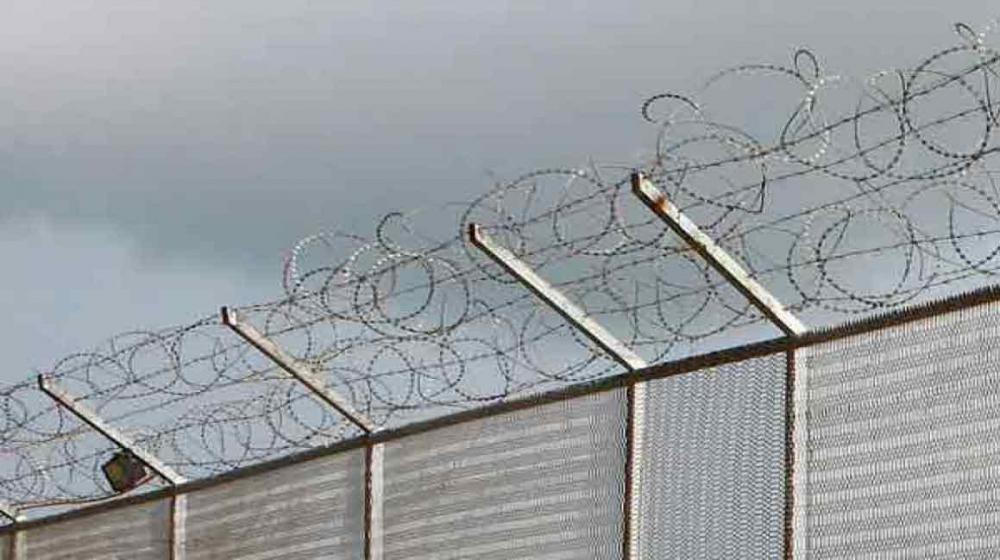Just Earth News | @Just Earth News | 22 Nov 2017, 05:04 am Print

Martine Perret
New York, Nov 22(Just Earth News): A senior United Nations human rights official has stressed the need for greater transparency by countries that still use the death penalty, noting that this is vital for families, who have a right to know the fate of their loved ones, as well as for lawyers so they can provide an effective defence.
“There is far too much secrecy, and it’s quite indicative the fact that although many countries are giving up the practice, those that retain it nevertheless feel that they have something to hide,” Assistant Secretary-General for Human Rights Andrew Gilmour said in an interview with UN News.
The UN has long advocated for the abolition of the death penalty. While some 170 States have either abolished the practice – which Secretary-General António Guterres has called “barbaric” – or refrained from it, prisoners in a number of countries continue to face execution.
Gilmour noted that the vast majority of executions on On Tuesday take place in five countries – China, Iran, Iraq, Pakistan and Saudi Arabia.
Last December, the General Assembly in its regular resolution calling for a moratorium on executions added a new element to try to resolve the issue of transparency, which is a prerequisite to assess whether the death penalty is being carried out in compliance with international human rights standards.
It also honours the right of all people to know whether their family members are alive or dead, and the location of their remains.
Gilmour recalled one recent case of a family that heard on the radio that their son had been executed, even though just the previous week the mother had been to the prison to ask for news about her son and they had refused to give it to her.
“Some of this seems to be unnecessarily cruel, additional punishment on the families,” he pointed out, highlighting the need for “common decency.”
“You may believe that someone deserves to be executed, or you may not, but even if you do, surely there’s no need to punish the family by keeping them in doubt.”
Also an issue is that some governments conceal executions and enforce an elaborate system of secrecy to hide who is on death row, and why. Others classify information on the death penalty as a state secret, making its release an act of treason, Gilmour noted, as in the case of Belarus and Viet Nam.
This lack of transparency shows “a lack of respect” for the human rights of those sentenced to death and to their families, according to Secretary-General António Guterres, who added that it also damages the administration of justice more generally.
“Full and accurate data is vital to policy-makers, civil society and the general public. It is fundamental to the debate around the death penalty and its impact,” he told an event at UN Headquarters last month to mark the World Day Against the Death Penalty.
“Secrecy around executions undermines that debate, and obstructs efforts to safeguard the right to life.”
As part of the effort to abolish secret executions, the UN human rights office (OHCHR) supports an initiative launched in September known as the Alliance for Torture-Free Trade, which aims to end the trade in goods used to carry out the death penalty and torture.
These include batons with metal spikes, electric shock belts, grabbers that seize people while electrocuting them, chemicals used to execute people and the forced injection systems that go with them.
“There’s something truly grotesque about medieval forms of torture, in a way, being advertised in mail-order catalogues and using the jargon of commercialization,” said Gilmour. “So I think it’d be a step forward in civilization to block this trade, and luckily there are some major drug companies who are refusing to allow their drugs to be used in instances of execution.”
Earlier this year, four men were executed within the span of eight days in the US state of Arkansas because the state’s supply of one of the drugs used in lethal injections – midazolam – was due to expire at the end of the month and it was unclear whether further supplies could be obtained.
“I’ve heard various arguments, absurd arguments for executing and some rather obscene arguments for executing,” Gilmour stated, “but I don’t really think I’ve heard many more obscene ones or absurd ones than the fact that the drugs for executing had reached their sell-by date.”
- Viral Irish food bank photo sparks shocking racist attacks on Indians
- Caught on camera: Two foreigners assaulted in Israel in an alleged racial attack
- Pakistan: Parents heartbroken after court sides with man accused of kidnapping minor Christian girl
- Pakistan: Trafficked 35 years ago, Bangladesh-born woman approaches court against FIA for offloading her from flight!
- Hindu tea worker found bound and bloodied in Bangladesh garden during general elections; investigation underway





-1763561110.jpg)
